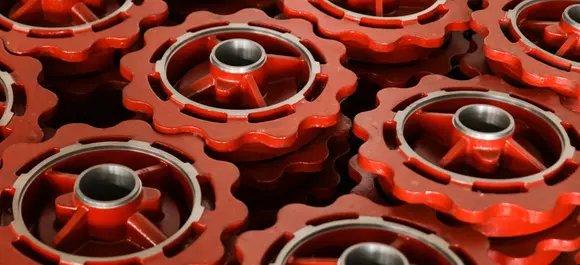Mobile:+86-311-808-126-83
Email:info@ydcastings.com
English
Optimizing Fire Pump Impeller Design for Enhanced Performance and Efficiency in Emergency Response Systems
Understanding Fire Pump Impellers Their Role and Importance
Fire safety is a critical aspect of any infrastructure, whether residential, commercial, or industrial. One of the key components that ensure the efficacy of firefighting systems is the fire pump, specifically its impeller. The impeller is an essential part of the fire pump that plays a significant role in propelling water at high pressures to combat fires effectively. This article delves into the intricacies of fire pump impellers and their importance in fire protection systems.
What is a Fire Pump Impeller?
The fire pump impeller is a rotating component that transfers energy from the motor to the water. It is typically designed as a centrifugal pump, where the impeller uses a wheel-like mechanism to generate a flow of water. When the impeller spins, it creates a low-pressure area at its center, allowing water from the supply line to enter. As the water moves outward, it gains velocity and pressure, which is crucial for delivering water at the necessary force to extinguish flames.
Types of Impellers
Fire pump impellers come in various types, mainly classified into two categories open and closed impellers.
1. Open Impellers These have no casing surrounding the blades. They are easier to clean and maintain but are more susceptible to wear and tear due to their exposed nature. Open impellers are often used in applications dealing with debris-laden water, as they can handle solids without clogging.
2. Closed Impellers These have a more shielded design with a top and bottom shroud. This design enhances efficiency and promotes better flow characteristics. Closed impellers are ideal for applications where high pressure and efficiency are necessary, such as in dedicated fire protection systems.
fire pump impeller

Importance of Impellers in Fire Pump Vehicles
The design and functionality of fire pump impellers significantly impact the overall performance of firefighting systems. Their importance can be articulated in several key areas
1. Efficiency A well-designed impeller maximizes water flow and pressure, ensuring that firefighters can deliver water rapidly to the fire scene. This efficiency can mean the difference between controlling a fire swiftly or allowing it to spread.
2. Reliability Fire pump impellers are built to endure extreme conditions, operating under high pressures and varying temperatures. Their reliability ensures that the firefighting system will function when it is most needed, providing peace of mind to system operators and the community at large.
3. Versatility Impellers designed for fire pumps can work effectively in different environments and conditions. Whether dealing with freshwater, seawater, or contaminated water, many impellers can adapt to the specific requirements of the situation.
4. Maintenance and Longevity The longevity of an impeller has direct implications for the fire pump's operational costs. Regular maintenance, including inspections and performance checks, is crucial. As wear and tear accumulate, timely replacement or repair of the impeller can save costs associated with downtime or system failures.
Conclusion
In conclusion, fire pump impellers are vital components in the realm of fire safety. Their ability to generate high water pressure and flow is crucial for effective firefighting operations. By understanding their functions, types, and importance, stakeholders in fire safety can ensure they implement the best firefighting practices and maintain fire pump systems for optimal performance. Ultimately, a well-functioning fire pump impeller can be the silent guardian, protecting lives and property during the most critical times.
-
Premium Fan Housing & Motor Casing for Optimal AirflowNewsAug.31,2025
-
High-Performance Automobile Water Pump & Electric SolutionsNewsAug.30,2025
-
Expert Stainless Steel Casting | Precision & Durable Metal PartsNewsAug.29,2025
-
Precision Metal Castings: Aluminum, Stainless Steel & Die CastingNewsAug.28,2025
-
Superior Aluminum Castings in Automotive Engine PartsNewsAug.22,2025
-
Common Materials Used in Fan Housing ManufacturingNewsAug.22,2025











